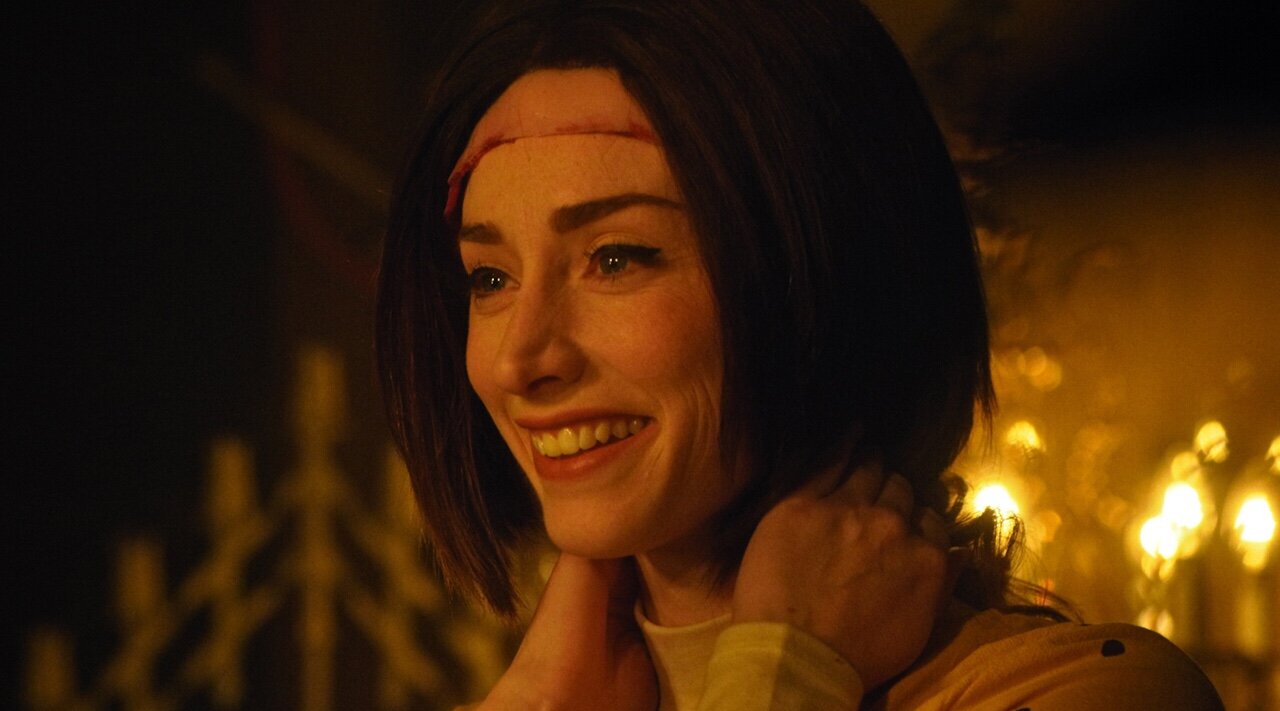1 ) Saint Maud
DIRECTOR: Rose Glass
STARRING: Morfydd Clark, Caoilfhionn Dunne, Jennifer Ehle, Marcus Hutton, Carl Prekopp, Lily Frazer, Lily Knight
RELEASE DATE: January 29th, 2021
WHERE TO WATCH (as of August 2021): Hulu
2 ) Censor
DIRECTOR: Prano Bailey Bond
STARRING: Niamh Algar, Michael Smiley, Nicholas Burns, Vincent franklin, SophiaLa Porta, Adrian Schiller
RELEASE DATE: June 11th, 2021
WHERE TO WATCH (as of August 2021): Amazon Prime Video (rental)
3 ) The Stylist
DIRECTOR: Jill Gevargizian
STARRING: Najarra Townsend, Jennifer Seward, Lindsay Solomon, Angela Dupuie, Brea Grant, Davis DeRock
RELEASE DATE: February 21st, 2021
WHERE TO WATCH (as of August 2021): Amazon Prime Video (rental)
by Dave Palamaro
The protagonist as the outcast/anti-hero used to be mostly the realm of male film directors (think Taxi Driver, Joker, Fight Club, Goodfellas etc.). But three new female horror directors are showing audiences that complex, emotionally damaged main characters need not be gender specific. Thank God for that because their films (Saint Maud, Censor and The Stylist) are a revelation.
***SPOILERS AHEAD FOR SAINT MAUD, CENSOR AND THE STYLIST***
Disturbed Heroes
Saint Maud, Censor and The Stylist all have one major element in common: they showcase female lead characters that are emotionally damaged, socially distant and possibly a danger to themselves or others. Where these characters differ, however, is why each of them reached such a state.
(Morfyd Clark plays Maud in Saint Maud)
In Saint Maud, directed by Rose Glass, Maud (played by Morfyd Clark) is a young nurse who experienced a traumatic event in her past that cost a patient their life. She blames herself for this death since the patient was in her care at the time. The shock and guilt she feels spins Maud out of her normal orbit and into a self-imposed extreme form of catholicism.
(Julie Ehle in Saint Maud)
She finds a new patient to save in terminal cancer victim Amanda (played by Julie Ehle). Saving Amanda’s soul soon becomes Maud’s mission. She believes that converting Amanda to catholicism before she succumbs to her cancer will make up for her failing to save the life of her previous patient. But Maud’s methods for this would-be salvation turn out to be...well, extreme.
(Niamh Algar as Enid in Censor)
Prano Bailey Bond’s Censor, Enid (Niamh Algar) is a seemingly emotionally healthy young woman. She works as a film censor in 1980’s England and spends her days watching endless “video nasties” (British horror films from the 1980’s). Her job is to determine which of these horror films are fit for public consumption, and if they are, which parts of the movies to cut out.
All seems normal until we meet her parents. We discover that Enid’s sister went missing years ago. It turns out that Enid blames herself for the disappearance of her sibling because she was with her sister when it happened. Enid’s parents want to move on and forget about their lost child (even presenting their missing daughter’s death certificate to Enid at dinner).
But Enid, not so much. She believes that her sister is out there somewhere and nothing her parents do will shake her from this belief.
(Niamh Algar in Censor)
Clearly, Enid’s personal mission is to find her lost sister. At some point she thinks she sees her sister (now an adult) in one of the “video nasties” she’s evaluating for work.
From that point on, any good intentions Enid has to locate her lost sibling quickly turns into an unhealthy obsession.
(Najarra Townsend plays Claire the stylist in The Stylist)
Unlike Maud or Enid, Claire (Najarra Townsend) in The Stylist isn’t given a reason (at least on-screen) as to why she is so damaged.
Director/writer Jill Gevargizian shows us who Claire really is in the very first scene.
Claire is a hair stylist who drugs and surgically scalps her clients. She then uses their hair as a macabre wig to act out her fantasies of being other people. In this way, Claire can be anyone she chooses. Anyone but herself. Why does she do this?
In several scenes it is very clear that Claire hates herself to an almost unimaginable degree. She puts up a good front to those in her public life but in private, she brings self-loathing to a whole new level.
(Najarra Townsend and Brea Grant in The Stylist)
When Claire is hired to do her friend Olivia’s (Brea Grant) wedding hair, it seems that she might finally be making a real connection with another human being. It appears that this just might be enough to break the murderous hamster wheel she’s trapped in. But director Gevargizian doesn’t give us such an easy way out of Claire’s psychosis.
Does anybody ever really get what they want?
So does Maud (Saint Maud), Enid (Censor) and Claire (The Stylist) get what they want by the end of their respective stories? Well, yes and no.
Directors Rose, Bailey-Bond and Gevargizian leave it up to the audience to decide if their damaged female protagonists achieve their goals by the end of their respective journeys.
Which is only fitting, as these films are as complex as their main characters. These three talented directors have shown audiences that mentally and emotionally challenging characters are not just for men anymore.
Ratings:
Saint Maud: 9.5/10
Censor: 8.5/10
The Stylist: 8/10
Dave Palamaro is a filmmaker known for Murder Made Easy (2019) and In Heaven There Is No Beer (2014).







